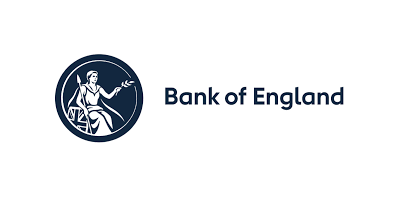
The Bank of England has today left interest rates unchanged at 5.25% for the second time in a row, amid concerns over a slowing UK economy.
The Bank’s Monetary Policy Committee voted by a majority to maintain the bank rate at 5.25%, a 15-year high, after reviewing projections that inflation will return to the 2% target set by the government by the end of 2025.
Following the latest interest rate announcement, Mike Randall, CEO of Simply Asset Finance said, “A steadying of interest rates will undoubtably relieve some pressure for small businesses, but there are still fundamental problems to be solved if they are to thrive in the coming year.
"These are firms that have remained unwaveringly resilient in the past few years, facing stubborn inflation, some of the highest interest rates on record, persistently high energy costs and ongoing supply chain issues. Yet support available to small firms - which represent 99% of UK business - has still remained limited, and in some cases has been cut back in recent months.
"Recently announced government commitments, such as the Prompt Payment & Cash Flow Review, are certainly a step in the right direction, but the job is far from complete and all eyes will be on the chancellor's Autumn statement next month. Despite the odds often being stacked against them, we are continuing to see SMEs investing in their growth as they know business must go on. But to ensure they can effectively pursue that journey to growth, it will be the responsibility of the financial industry and the government alike to help clear the path of any obstacles, and give business leaders the confidence they need to feel empowered."
Neil Rudge, Head of Enterprise at Shawbrook, commented: "This will reassure SMEs who may be starting to feel more optimistic that the peak of the interest rate cycle has now been reached. The halting of rate hikes coupled with steadying inflation allows small businesses the room they need to lay out their plans for 2024 and gives them the confidence necessary to commit to larger investments. Whilst the news may be trending in the right direction, the business climate is still challenging for SMEs with figures this week suggesting the number of companies going bust this year is on track to be the highest since the depths of the financial crisis in 2009.
"Our own research has revealed that one in ten SMEs that have struggled to access funding eventually folded. While mainstream, traditional finance providers often don’t offer the expertise or appetite to support these businesses, there are a plethora of specialist lenders who can help plug the funding gap and prevent these insolvencies.”
Michael McGowan, Managing Director, Foreign Exchange at Bibby Financial Services noted: “After September marked the first pause in a brutally long run of rate rises, it’s come as no surprise that the Bank of England held the interest rate steady again today – especially after this week’s fall in food price inflation. Businesses may dare to hope the summit has been reached and hikes are at an end.
"Yet a rate of 5.25 per cent is no walk in the park for businesses – and SMEs, who rely most on external finance, will be feeling the pinch hardest. What’s more, for the 53% of UK SMEs that import and/or export across borders, the rate pause has already sent the pound tumbling against the dollar and the euro, which represents a potential a blow to profitability.
"It’s critical then that SMEs –- the backbone of the UK economy – closely monitor their foreign currency needs while fluctuations persist, to mitigate the risks of a weaker pound and current volatility.”

